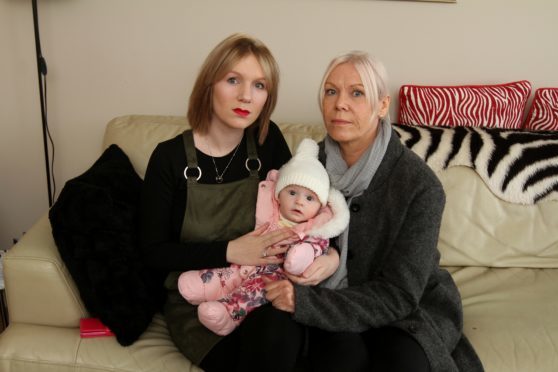An adoption charity has called for “radical change” in the system – after it was revealed today that adopted children are more than twice as likely to be unemployed, and 41% more likely to have mental health problems as children raised by their brith families.
Adoption UK has published The Adoption Barometer, revealing that adopted children in Scotland are more than twice as likely not to be in employment, education or training (NEET) as their peers, 31% of them have had contact with the criminal justice system and 41% have needed help from mental health services.
Three quarters of adopted children have suffered significant violence, abuse or neglect in their birth families, with a lasting impact that extends into early childhood and affects life chances, placing huge emotional and often financial strain on adoptive families, the organisation said.
There are at least 55,000 adoptive families in the UK.
The Adoption Barometer reveals that while advances have been made in recruitment and preparation of adopters, government policies are still not addressing the heart of the challenges faced by adoptive families, and especially families with older children.
Around 3,500 families across the UK were surveyed, inlcuding 330 north of the border, asking them to reflect on their experiences during 2018.
Adoption UK is the leading charity providing support, community and advocacy for all those parenting or supporting children who cannot live with their birth parents.
The charity connects adoptive families, provides information and signposting on a range of adoption-related issues and campaigns for improvements to adoption policy and legislation at the highest levels.
The charity also assessed national policy relating to adoptive families at various stages of their adoption journey.
The report reveals that 85% of families in Scotland would encourage others to adopt, despite 62% facing a continual struggle for support.
Fiona Aitken, director of Adoption UK in Scotland, said: “There is a clear message here from Scottish adoptive families that they are optimistic about the outcomes of their children, despite the lack of consistent adoption support offered across Scotland.
“We know there are areas where families receive the help they are asking for, and we are striving to ensure that more families can access these.
“Adoption is not always a straightforward happy ending for children – we need to acknowledge that many children will require help to thrive within their families because of their early experiences.”
All four nations score ‘poor’ in at least one area of policy, with every nation having further to go to meet the policy needs of adoptive families.
Scotland scores reflect poorly across the board due to lack of national consistency, in particular in relation to adoption support.
Policy relating to finding families for children scores best across the board. Policy relating to the education of adopted children scores worst.
Adopters’ experiences in Wales scored best, and were at similar levels in the other three nations.
Other key themes to emerge from The Adoption Barometer include: high levels of child-to-parent violence, ill-planned and badly-supported contact arrangements with birth families; high rates of health problems including Attention Deficit Hyperactivity Disorder (ADHD), Autistic Spectrum Disorder (ASD), Fetal Alcohol Spectrum Disorder (FASD) and mental ill health; and large numbers of families resorting to home education because the formal school system is letting their children down.
Adoption UK is calling for a radical new deal for adoptive families, which provides the support they need to help re-write their children’s futures.
This includes detailed therapeutic assessments for every child before they arrive in their new family, with accompanying fully-costed support plans, to be maintained and reviewed into early adulthood. In Scotland, Adoption UK is recommending ring-fenced adoption support.
Children’s Minister Maree Todd said: “We welcome the finding that 85% of families in Scotland who have gone through the adoption process would encourage others to do the same.
“We know that adoption is making a positive difference, but we also know that there is more to do. The Independent Care Review will be key in deciding the next steps in looking at the legislation, practices, culture and ethos of the system for care experienced children.
“I am grateful to Adoption UK Scotland for highlighting these important issues and look forward to working together to ensure that all our adopted young people have the opportunity to fulfil their full potential.”
The findings of the report include:
· 85% of adoptive families would encourage others to adopt
· 81% of prospective adopters say their social worker understood and supported them through the process of approvals & matching
· 44% of prospective adopters found the process so difficult that they wondered if they could continue
· 57% of new adopters experienced stress, anxiety or the symptoms of post-adoption depression during the early weeks
· 47% of established adopters faced significant or extreme challenges
· 59% of parents experienced violence or aggression from their child
· 62% feel that it is a continual struggle to get the help and support their child needs
· 44% feel that contact with birth family is not well-managed by their agency
· 33% of adoptees aged 13-18 experienced direct birth family contact outside of a formal agreement – often unsolicited, via social media [(n=20)]
· Nearly two-thirds of parents agreed that their 16-25 year-olds need significant ongoing support in order to live independently
· 16-25 year-olds were twice as likely to be not in education, employment or training (NEET) as their peers
· 41% of 16-26 year-olds in Scotland had been involved with mental health services
· 33% of children had diagnosed social, emotional and mental health needs
· Adopted children in UK were 20 times more likely to be permanently excluded from school
· 80% of home educating adoptive families across the UK would prefer their child to be in school
